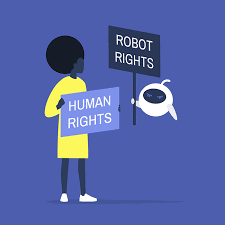Artificial intelligence (AI) is currently a recurring topic in many areas of society, whether in everyday conversations or in specialised forums. This technology, which exhibits a remarkable potential to improve people’s quality of life, has generated a wide spectrum of opinions and debates in different sectors, such as business, health, economics and law. However, it is important to recognise that, like any other technological use, artificial intelligence can carry both benefits and potential risks for society and individuals. In mature societies, regulation emerges as the main tool for responsible use of this technology.
The regulation of artificial intelligence has generated heated debates since the beginning of the second decade of the 21st century. With the election of President Donald Trump to the White House, who has shared positions with prominent business and technology leaders, there has been a resurgence of the view that regulating this technology represents a significant obstacle to its innovation and development. This perspective, while not new, was not the predominant view in the specialised forums where the regulation of artificial intelligence was debated in previous years. Even most companies demanded a regulatory framework that would establish a level playing field to be able to invest and innovate with legal and business certainty.
Therefore, the debate should not focus on whether artificial intelligence should be regulated or not. In fact, from a legal point of view, any legal system has sufficient tools to provide a response if the use of an AI system causes harm to a person. No judge in a similar dispute, claiming compensation for harm caused by the use of an AI system, can leave the dispute unaddressed. A different question is to what extent such an answer is satisfactory and how much judicial activism or legal creation the judge should develop. Judges, as a public authority, must make their decisions solely on the basis of the law. In this way, citizens can know in advance what arguments the arbiter of their dispute is likely to use and adapt their behaviour accordingly. This way also means that arbitrary and abusive behaviour is prevented. This requirement applies not only to judges, but to all public authorities in any democratic system, embodied in the legal principles that constitute the rule of law.
Without specific rules, people’s behaviour and decisions will lack a frame of reference and the response of authority will be unpredictable. Suitable and specific rules therefore provide certainty for all stakeholders, including companies, to protect their rights and interests and to counter arbitrariness, abuse of power, and injustice.
The debate should therefore focus on other types of questions that provide the rigour and complexity that this issue deserves, thus avoiding Manichean and simplistic postulates. Firstly, what should be the object of regulation? Secondly, how should it be regulated? Thirdly, who should regulate it? Lastly, from what point of view? For example, what ethical and/or legal principles should preside over such regulation, being aware that these principles will decisively condition its objective and its addressees.







